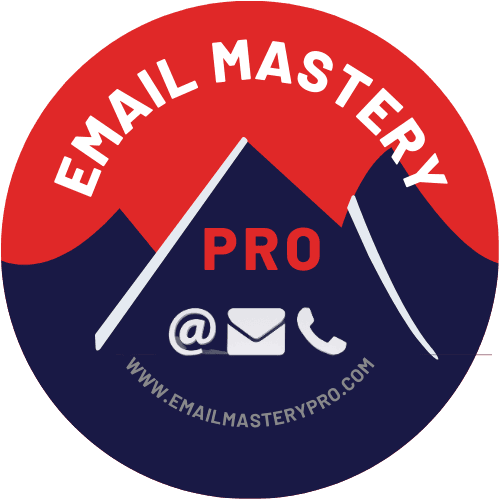
Email marketing has been a staple in the business world for years, and its importance shows no sign of waning. A well-curated email list is a goldmine for businesses, offering a direct line of communication to engaged customers. But with the plethora of email marketing platforms available, how does one choose the best fit? This article provides a detailed comparison to guide you in making an informed decision.
Why is Email Marketing Important?
Before we delve into comparing platforms, it’s crucial to understand the significance of email marketing. With a whopping return on investment (ROI) of $42 for every dollar spent, email marketing offers businesses an efficient and cost-effective way to reach their audience. It fosters customer relationships, builds brand loyalty, and drives sales. In a world dominated by social media, emails still offer a personal touch, landing directly into your customer’s inbox.
Factors to Consider
When choosing an email marketing platform, it’s essential to keep the following considerations in mind:
- Usability: Can someone with limited tech skills use it effortlessly?
- Features: Does it offer automation, analytics, or design templates?
- Scalability: Will it cater to your needs as your business grows?
- Price: Is it affordable, and does the cost justify the features?
Top Email Marketing Platforms: A Brief Comparison
- Mailchimp:
- Usability: Known for its user-friendly interface, it’s excellent for beginners.
- Features: Offers list segmentation, autoresponders, analytics, and a vast template library.
- Scalability: Great for small businesses but can become pricier as your list grows.
- Price: Offers a free version with basic features, but premium plans can be costly.
- Constant Contact:
- Usability: Simple and intuitive, especially for those new to email marketing.
- Features: Provides an event management tool, surveys, and social campaign tools.
- Scalability: Suitable for all sizes, with plans accommodating growing lists.
- Price: No free version, but the pricing is reasonable for the features provided.
- SendinBlue:
- Usability: Slightly steeper learning curve but manageable with tutorials.
- Features: Standout features include SMS marketing and transactional emails.
- Scalability: Great for both startups and larger enterprises.
- Price: Pay-as-you-go system, allowing businesses to only pay for emails sent.
- GetResponse:
- Usability: Moderate learning curve but offers a rich feature set.
- Features: Webinars, landing pages, and advanced automation make it stand out.
- Scalability: Suitable for businesses of all sizes, from solopreneurs to large enterprises.
- Price: No free version, but it offers a 30-day trial.

Making Your Decision
Your choice should align with your business’s needs and budget. If you’re a beginner or a small business, Mailchimp’s user-friendly interface might appeal to you. However, if you want more advanced features and are willing to navigate a slight learning curve, GetResponse or SendinBlue could be more suitable.
Remember, the platform’s objective is to ease the email marketing process for you. Thus, while features are essential, if you find a platform overwhelming, it might not be the right fit, regardless of how advanced it is.
Integrations
Most businesses use a plethora of tools for various functions, from CRM systems like Salesforce or HubSpot to e-commerce platforms like Shopify or WooCommerce. An email marketing platform’s ability to seamlessly integrate with these tools can be a significant advantage.
- Mailchimp: Boasts a wide range of integrations, especially e-commerce platforms, which makes it easier to target and track sales directly from your campaigns.
- Constant Contact: While it does offer integrations, the range is somewhat limited compared to other platforms. However, it covers all the essential business tools most small businesses use.
- SendinBlue: Offers robust integration capabilities, especially with WordPress, which is an added advantage for businesses using WP as their primary CMS.
- GetResponse: Has developed APIs for integration with a multitude of third-party tools, ensuring your email marketing campaigns are well connected with other business functions.
Customer Support
Nothing can be more frustrating than facing technical issues in the middle of crafting a campaign and not having immediate support.
- Mailchimp: Offers extensive online resources, but live support is restricted to business hours and might require a premium plan.
- Constant Contact: Known for its excellent customer service. They offer phone support, live chat, and an extensive library of tutorials.
- SendinBlue: Provides 24/7 email support and phone support for premium plans. Their knowledge base is also comprehensive.
- GetResponse: Offers 24/7 live chat support and email support. Their webinars and tutorials are also beneficial for users.

Conclusion
In the dynamic world of digital marketing, email remains a stalwart method of directly reaching your audience. Choosing the right email marketing platform is a pivotal decision that can significantly impact your marketing outcomes. Evaluate your needs, weigh the pros and cons of each platform, and remember that the best platform is the one that aligns seamlessly with your business goals. Here’s to successful email campaigns and a flourishing business!






